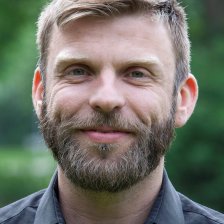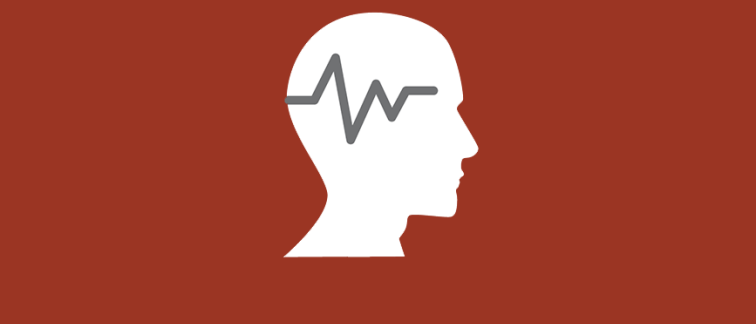Rationale and common goals
To understand how networks of neurons and brain areas give rise to brain function and behavior is a major goal of Neuroscience. In addition, studying the interaction of the central nervous system with peripheral organs offers new avenues to improve health. The research program of Systems & Network Neuroscience brings together research groups using invasive and non-invasive approaches in the living brain to study and manipulate brain networks in health and disease.
This program promotes the implementation of technological advances in neuroscience such as: MEG, EEG, deep brain stimulation (DBS), TMS/TDCS, resective brain surgery, in vivo nerve stimulation, in vivo neuronal and network recordings, opto-and chemogenetic manipulations, Optical Coherence Tomography (OCT) of the human retina, miniscope and 2P imaging, functional magnetic resonance imaging (fMRI), PET scans, computational approaches and others.
A major focus of the program is on understanding brain networks for sensory processing, motor control, cognition, mood, reward and harnessing collaborations on cross-discipline functional studies of brain function in relation to health.
Assets
- Excellent research groups with top publications.
- Strong complimentary expertise at both Universities and Amsterdam UMC on neurotechnology.
- Strong ties with clinical departments with large patient cohorts for current and future application of technologies.
- Strong links with Industry to facilitate technological developments.
Profiling
- Study of network function and pathophysiological mechanisms of disease at the systems level.
- A mechanistic understanding of how networks of neurons give rise to brain function and behavior.
- Use of cell-type and network specific manipulations of brain function in health and disease.
- Examine how neural activity in the central nervous system coordinates the activity between the brain and body.
- Design and engineering of electrophysiologicalor mechanical systems that control sensory feedback and information processing in the brain.
- Improvement of clinical applications of technologies developed within and outside Neuroscience Amsterdam.
Making the difference
This research program relates to the fundamental as well as the clinical themes in Amsterdam Neuroscience, with good connections to industry, facilitating novel technological developments. Applying these technologies to study and manipulate neuronal and brain networks in the living brain and actively apply it to the treatment of pathological conditions will not only increase understanding of how brain networks give rise to function, but will also have direct impact on health prospects of patients.
Program leaders
Taskforce team
Program members
-
Additya Sharma
-
Alida GouwPI DR.
-
Ann-Sofie SchauwvliegheMD
-
Arjan HillebrandPROF.DR.IR.
-
 Arthur BuijinkDR.
Arthur BuijinkDR. -
Bart Westerman
-
 Christian Bick
Christian Bick -
Clara Susanne Elisabeth Hartmann
-
Daniele Avitabile
-
 Dominika Karaszewska
Dominika Karaszewska -
Esmeralda BosmaMSc
-
Eugenio van SomerenPI DR.
-
Faroeq Ramsaransing
-
 Femke Waleboer
Femke Waleboer -
 Helmut Kesselsprof. dr. Ir.
Helmut Kesselsprof. dr. Ir. -
Hui Xiongdr.
-
IJsbrand ZijlstraDR.
-
Ilan Libedinsky Pardo
-
Ilse van StraatenDR.
-
Imme van der Knaap
-
 Ingo WilluhnPI MSc PhD
Ingo WilluhnPI MSc PhD -
 Iris van den Heuvel
Iris van den Heuvel -
Jan Gorterdr.
-
Jantien HoogmoedDR.
-
Johannes de BoerPI PROF.DR.
-
 Jorge Mejiasdr.
Jorge Mejiasdr. -
Julia van Adrichem
-
Koen Giliam Helwegen
-
Larissa Heideman
-
 Linda DouwPI DR.
Linda DouwPI DR. -
Lotte Razenberg
-
Maarten BotMD
-
Madeleine VaderDRS.
-
 Marcel Oberlaender
Marcel Oberlaender -
Maria Candellero
-
Marina Diachenko
-
 Marlies Oostlanddr.
Marlies Oostlanddr. -
Michiel Lequin
-
 Natalia Goriounova
Natalia Goriounova -
Natalie Cappaertdr.
-
 Nathan MarchantPI Dr.
Nathan MarchantPI Dr. -
Niels van Striendr.
-
Ozlem Engin
-
Pascal Chameaudr.
-
Pelle Wilbers
-
Pepijn van den MunckhofPI DR.
-
 Peter VandertopPI PROF.DR.
Peter VandertopPI PROF.DR. -
 Philip de Witt HamerPI PROF.DR.
Philip de Witt HamerPI PROF.DR. -
Pieter RoelfsemaPI Prof. PhD
-
Rene PostDR.
-
Rick SchuurmanPI PROF.DR.
-
Rozemarije HolewijnDRS.
-
Sander IdemaDR.
-
 Sanne Beerens
Sanne Beerens -
Sebastian Quiroz
-
Sofja Solovjova
-
Steven ImmengaDRS.
-
Su Saka
-
Timo ten Brinke
-
Tsz Ting Wong
-
 Umberto Olcesedr.
Umberto Olcesedr. -
Ysbrand van der WerfPI PROF.DR.




